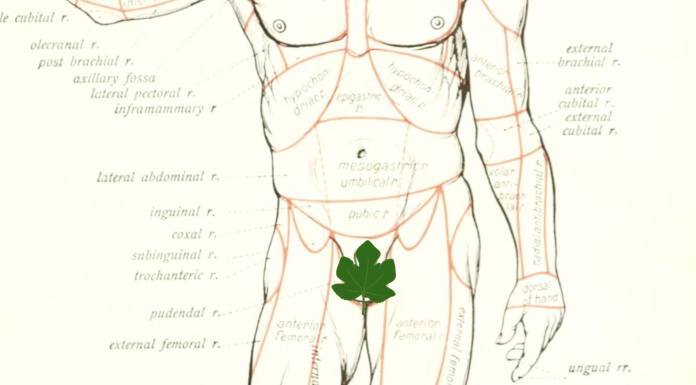July 21, 2020
The Patriot Hill – Doctors have been calling out gender bias on some of the origins of human body parts, believing that the medical language is both “sexist” and “misogynistic.”
For ob/gynDr. Kristin Small, these medical terms represented an older generation and had become increasingly irrelevant in today’s generation.
These terms include Achilles Tendon, which was named after the weak spot of a Greek Trojan war hero. Another example is the term Adam’s Apple, which refers to a biblical male figure.
While Small continues to teach the medical terms for strictly “exam purposes,” she encouraged her students to find alternatives for what she considers as a “dead man’s name,” that was simply patterned after “old men, kings and heroes.”
Other members of the medical field agree with the misogynistic medical language.
Another ob/gyn, Dr. Nisha Khot, claimed that students are often “shocked” by the sexist origins of these body parts.
She cites the term “hysterectomy” as an example. Khot explained that the origin came from the medical practice of removing a women’s uterus to treat hysteria, and instead suggested “uterectomy” as a more appropriate term.
Other sexist medical terms include Aquaduct of Sylvius, a fluid-filled brain canal, Montgomery glands that refer to the nipple glands, and Pouch of Douglas, an area that is found between the rectum and the uterus.
Most recently, other big companies are forced to make a change to their names. Such changes include Quaker Oats and Trader Joe’s … Read more.
“Retard,” “Spaz,” “Crippled” – Eliminating Disrespectful Words
Using proper terminology is empowering
CerebralPalsy.org – Misused, outdated, or negative terminology is inappropriate and hurtful.
A person with impairment should not be defined by his or her condition: He is not spastic, he has spastic Cerebral Palsy.
Recognizing outdated terminology is respectful: She is not wheelchair-bound, she uses a wheelchair. Eliminating negative tone is respectful: He is not ‘special ed,’ he participates in the special education program.
Official Calls Special-Ed Kids ‘Crayon Eaters’: Report
Eliminating disrespectful slang and words that imply victimization is appropriate: He is not a victim, unfortunate, crippled, sufferer, stricken by, retarded, spastic, or incapacitated; he simply has impairment.
As those within the medical industry and the community-based support network move towards universally accepted concepts and shared terminology, many terms will continue to be modified, changed, and more clearly define. Terminology continues to evolve.
Even though the terms impairment, disability and handicap are accepted today, they may be changed tomorrow. In fact, in 2005 the World Health Organization (WHO) recommended classifying Cerebral Palsy as an ‘activity limitation’ versus ‘impairment.’
sexist Yet, others prefer ‘activity ability’ in order to concentrate on a person’s capability, rather than his or her limitation. Some recommend using the term ‘participation restriction’ in place of ‘handicap.’ Although recommendations are made, not all are established.
“Becoming aware of our own perceptions, stereotypes and discomforts around particular disabilities is the first step towards addressing subtle biases that could possibly be projected onto individuals with disabilities,” St. Mary’s County Commission for People with Disabilities states. “Our own beliefs and comfort level around disability has a major impact on how we view, interact, and provide service and programs.” … Read more.
A-to-Z list of terms that are no longer deemed socially acceptable

- Addict, use person with a drug problem or person with a substance use disorder instead
- Brain damaged, use a person with a brain injury instead
- Crazy, especially when used to describe something incredible or ridiculous
- Dwarf
- Epileptic, especially when referring to an individual
- Freak
- Gimp or gimpy to describe a limp
- Hysterical, typically used in reference to women
- Imbecile was the diagnostic term for people with IQ scores between 30–50 in the early 1900s. It is no longer used professionally.
- Junkie, use person with a drug problem or person with a substance use disorder instead
- Lame. A reference to difficulty walking or moving; e.g. “He told us a lame excuse for why he had not done the work.”
- Moron, moronic
- Nut, nuts, or nuthouse
-

Hitchcock would never get away with this movie title today. Psycho
- Retard/Retarded although before circa the 1990s this was considered acceptable by most non-disabled people and organizations. Also known as the r-word.
- Schizo, especially as an adjective, meaning “erratic” or “unpredictable” or, for the former two, to refer to an individual.
- Tard, short for “retard”; see retard above.
- Vegetable
HEADLINE HEALTH:
Please Stop Calling People “Vegetables” - Wheelchair-bound, use “person who uses a wheelchair”
- Yuppie flu used as a pejorative term for chronic fatigue syndrome Source.



